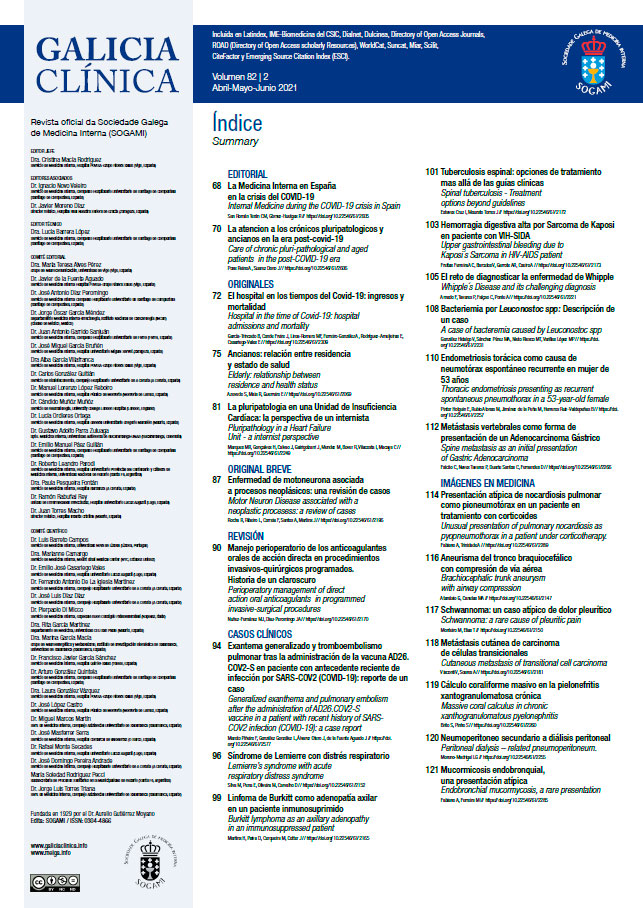Resumen
Lemierre's syndrome is a clinical triad of acute oropharyngeal infection, secondary local invasion and vein thrombosis often involving the internal jugular vein, along with evidence of systemic septic embolism. Usually affecting otherwise healthy adolescents and young adults, anaerobic Fusobacterium spp. are often implicated; other bacterial species are sometimes found. While being a rare disease with a reported 14.4 cases per million person-years, it carries a mortality rate of 5 to 9%. Clinical presentation can be severe owing to septic shock, multiorgan dysfunction, septic embolization and acute respiratory distress syndrome requiring ICU admission. Treatment involves antibiotic therapy with anaerobic coverage and supportive care. Anticoagulation use is controversial and surgical treatment may be needed to control focus of infection. There is few quality evidence available regarding the clinical management of this syndrome. We report a case of Lemierre syndrome caused by Streptococcus hemolyticus group c, complicated with pulmonary septic embolism, necrotizing pneumonia, empyema and acute respiratory distress syndrome with a degree of severity that required the use of extracorporeal membrane oxygenation to support the patient.Galicia Clínica by Sociedad Gallega de Medicina Interna is licensed under a Creative Commons Reconocimiento-NoComercial-SinObraDerivada 4.0 Internacional License.
Created from galiciaclinica.info.


